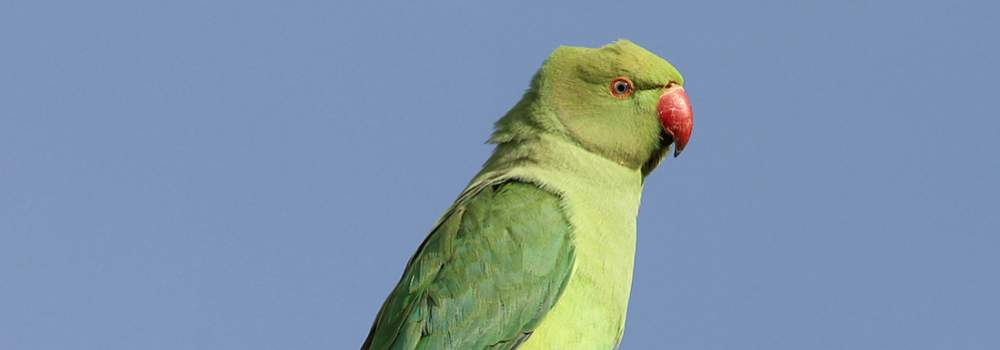Currently non-native species are being introduced to countries at an unprecedented rate. These species can have severe detrimental effects on native biodiversity, human health and the economy. Due to population growth, increases in trade and tourism and global warming the likelihood of non-native species arriving and establishing in the UK will be higher in the future. A new study by BTO investigates whether it is possible to predict which non-native species are likely to establish in the UK based on the climate in their native range, thereby enabling early preventative action to be taken.
Invasive species can have serious effects in their new home turf; they can be economically expensive, potentially cause health hazards, and they can have a large impact on the native biodiversity. Predicting whether invasive species are likely to colonise the UK is therefore an important priority. This study compared the suitability of the climate in the UK against the native range of 167 potentially invasive, or already established non-native bird species to see which species would be able to expand their range into the UK.
Climate parameters that were used included temperature, precipitation and moisture. Values were used for both the current climate and the projected future climate. Results predicted that in the future, the UK climate will be suitable for more non-native species. Currently the UK climate was deemed suitable for 69 out of the 167 species included, but only 44 of those species actually currently occur in the UK. The results also showed that 85% of species that have colonised the UK successfully were found in climatically unsuitable areas. Many of these were usually found in areas that were wetter than their native range.
In conclusion, there was no overall support that climate suitability is a reliable predictor of non-native bird species’ ranges, as there are many other contributing factors. Non-native populations are highly dependent on when and where introductions take place. Additionally, local availability of resources and competition with native flora and fauna may prevent establishment. Similarly, some birds which may not be climatically suited to the UK may be able to evolve rapidly to adjust to a different climate, or human influence (such as feeding) may provide them with the resources they need to survive. Regular surveying will be necessary to determine the effect climate change has on bird populations, and on where they may go in future.

No comments:
Post a Comment